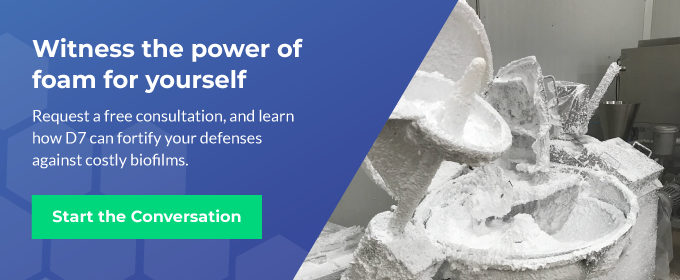Playgrounds and other areas where children gather are notorious for having higher levels of germs and bacteria. This is partly because children are still developing the habits that contribute to a more sanitary environment, such as handwashing and covering mouths when coughing or sneezing. The volume of children in a playground and the frequency it is cleaned are also factors that affect how much bacteria is present.
Although typical playground bacteria levels might be fine for many children, it can be a health risk for those who have compromised immune systems from a condition called neutropenia. This is why the organization Lily’s Pad has the mission to create hyperclean spaces for autoimmune deficient children to gather and play together. Playground sanitation makes it possible for children with diseases that require them to be in hyperclean environments to have access to play areas, helping them maintain a more typical childhood experience. Lily’s Pad is a unique and special space where families can gather so children and plan and parents can have peace of mind that they are protected from harmful bacteria.
Typical Playground Pathogens
Unlike in food processing environments where the most common bacteria are typically related to the products being handled, playground pathogens cover a much larger spectrum. Undeveloped handwashing habits among children contribute to higher levels of fecal coliform, which can cause gastroenteritis and other potential conditions. Staphylococcus aureus on playgrounds can cause skin or respiratory infections. Although many people carry this bacteria in their systems with no symptoms, in hospitals with immune-compromised children, it presents a serious risk.
Klebsiella pneumoniae, the pathogen that is responsible for most hospital-acquired pneumonia and urinary tract infections, is also a potential risk on playgrounds. Streptococcus pyogenes can spread among children after contact with playground equipment, causing infections such as streptococcal pharyngitis, rheumatic fever, rheumatic heart disease, and scarlet fever.
How D7 is Used for Playground Sanitation
Daily playground sanitation in spaces like Lily’s Pad—including all of the toys and play equipment that are in the area—helps reduce the risk of bacteria-related health issues in children with compromised immune systems. This is one reason Lily’s Pad forged a relationship with Decon7. Our product D7, a sanitizer used in the food processing industry to bring bacteria to safe levels inside facilities, can also be applied in playground environments to sanitize toys, equipment, and surfaces.
Because it kills bacteria at the DNA level by chemically cleaving the spore wall and neutralizing the mycotoxin inside, it is effective on a broad range of pathogens. D7 can be applied as a foam, spray, soak, or deodorizing fog, making it a versatile solution for playground sanitation. When applied as a foam, it is clearly visible where the product has been applied and which areas have not yet been sanitized. When applied as a deodorizing fog, the atomized chemical is able to efficiently reach all the surfaces and equipment in the application area.
D7 is not corrosive or abrasive, so it is gentle on playground equipment and toys. It also contains no volatile organic compounds (VOCs), making it suitable for use in areas where children with chemical sensitivities play.
Making a Difference with D7
Playgrounds of all types should be regularly cleaned and sanitized to keep bacteria at safe levels, but in areas where children with compromised immune systems play, it is especially important to maintain a daily sanitation schedule. Hospitals and other organizations, such as Lily’s Pad, that have these types of playgrounds can benefit from using D7 for regular sanitation, whether it is daily or between each play session.
D7 is safe for people and equipment. As part of a program to support children with compromised immune systems, rotating volunteers will apply D7 to playground equipment after they receive an orientation on facility processes, including the use of D7 for sanitation. You can help make it possible by making a donation to Lily's Pad, an Arizona Nonprofit Corporation dedicated to making a hyper-clean space for immunocompromised children to play.

